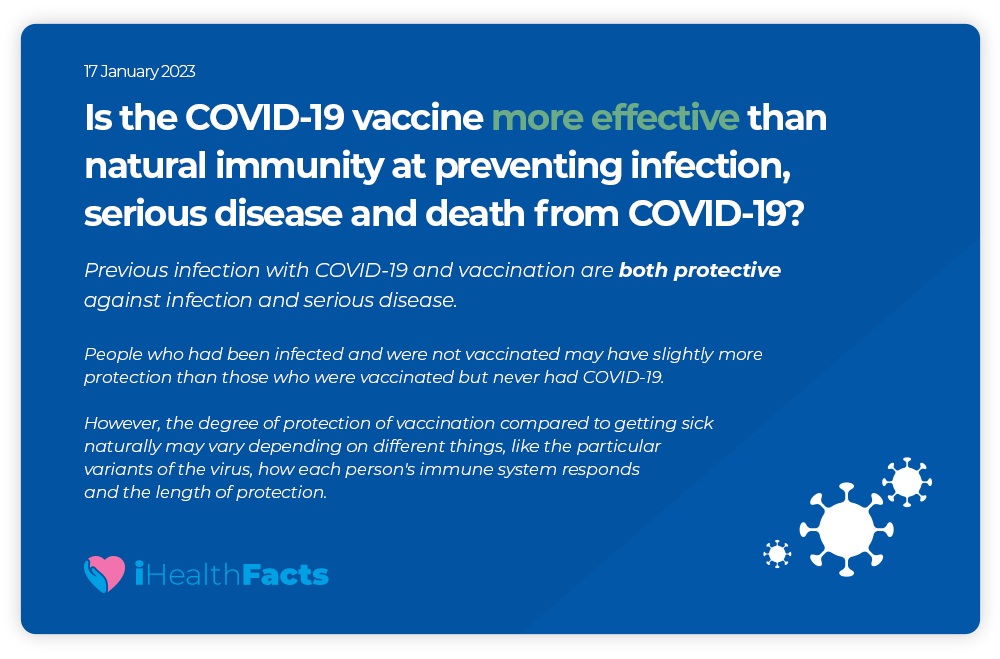- We found five systematic reviews that compared infection rates in people who had previously had COVID-19, and had not been vaccinated, to people who had been vaccinated.
- Two of these reviews contained the types of studies we can be most certain about:
- The first of these found that vaccinated people who never had COVID-19 were slightly more likely to become infected than unvaccinated people who had previously been infected. Giving a vaccine to someone who had been previously infected gave additional protection from infection (hybrid immunity), but only by a small amount.
- The second of these found that either being previously infected with COVID-19 or being fully vaccinated can reduce the likelihood of experiencing severe symptoms by almost half, compared to someone who hasn’t had either. The chances of severe COVID-19 were lower in people who were previously infected than in those who were vaccinated regardless of age.
- A HIQA review describes four relevant studies which reported:
- First study: People who were previously infected with COVID-19 have a lower risk of experiencing severe outcomes than those who are fully vaccinated.
- Second study: There is no difference in the risk of getting hospitalised or infected between people who are fully vaccinated and those who were infected previously.
- Third study: Both fully vaccinated individuals and those who were previously infected have a lower risk of getting infected, but the previously infected group may have a slightly lower risk.
- Fourth study: Couldn’t compare the groups due to low numbers of reinfections overall.
None of these studies had been peer-reviewed when they were published in this report.
- We found two other reviews of lower certainty (here and here)
- The first reported on people who had previously been infected, some of whom were subsequently vaccinated and some who were not. Less than 1% of either group got infected again within one year, with slightly lower rates in those who had been vaccinated.
- The second review was unable to provide an estimate for the rate of reinfection. It did show that people who were fully vaccinated had lower rates of severe COVID-19. However, this finding should be interpreted with caution due to the small number of severe cases overall, which makes it challenging to draw any firm conclusions.
Guidelines and recommendations
- The WHO in April 2020 said that it was likely that natural infection may provide similar protection against symptomatic disease as vaccination, but that there was some uncertainty about this in light of new variants.
- The HSE recommends that people who have had COVID-19 who are over-50 or are susceptible to infection should be vaccinated.
